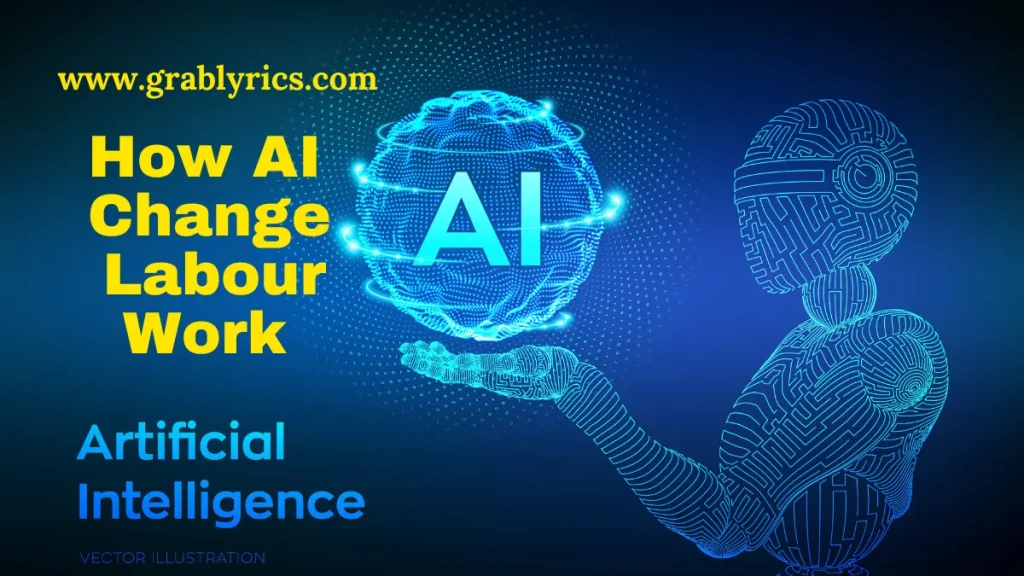Artificial Intelligence or AI will change labour work in a massive force in next few years. Already transforming how we live and work. And its impact is expected to grow in the coming years. This blog post will explore how AI will change the labour market over the next 5-10 years and what this means for workers and employers alike.
One of the most significant impacts of AI on the labour market will be automated. Many routine and repetitive tasks currently performed by human workers will be taken over by AI systems, resulting in job losses in some industries. For example, AI systems can perform tasks such as data entry, bookkeeping, and customer service faster. And, more accurately, reducing the demand for human labour in these areas.

However, it’s important to note that while AI may replace some jobs which will definitely change on labour work. It is also expected to create new job opportunities related to its development and deployment. As AI becomes more widespread, there will be a growing demand for workers with technical skills. Such as data scientists, software engineers, and AI developers. As well as for experts in areas such as ethics and governance, who can help ensure that AI systems are used responsibly and ethically.
Another way in which AI will change the labour market is by improving productivity and efficiency. AI systems can analyze large amounts of data, identify patterns. And make predictions faster than humans, leading to improved decision-making and more streamlined processes. This can lead to reduced costs and increased business competitiveness. Which can ultimately benefit workers through job security and better working conditions.
Existing job roles are also likely to be transformed by AI. Workers will be required to incorporate AI technology into their daily tasks. This could change labour work using AI systems to automate routine tasks, freeing time for more creative and strategic work. It could also mean that workers will need to be trained in new skills to effectively use AI systems and work alongside them. This could increase job satisfaction for workers as they can focus on more challenging and fulfilling work.
In addition, AI will also allow for human work to be augmented, enabling workers to make more complex and advanced decisions. AI systems can analyze vast amounts of data and provide insights. That human workers may not have been able to identify, leading to improved decision-making and outcomes. This could lead to higher job satisfaction for workers and enhanced products for businesses and society.
Also Read:
>> Avatar 2 Download : The Way of Water Movie HD online free easily
>> 7 Best Free URL Shortener for Affiliate Marketing that you should use
>> 7 Cheapest Online Shopping Sites of 2023
Workplace safety will also be improved through AI for dangerous tasks. For example, AI systems can be used to conduct inspections in hazardous environments. Such as offshore oil rigs or nuclear power plants, reducing the risk of injury to human workers. AI systems can also monitor and control industrial processes, reducing the risk of accidents. And ensuring the safe and efficient operation of these processes.
Furthermore, AI will bring greater accuracy and consistency to tasks. Which can be automated, leading to reduced errors and improved quality. This is particularly relevant in industries such as healthcare. Where AI systems can support medical diagnoses and treatments, leading to enhanced patient outcomes.
Finally, AI will improve data analysis and insights, leading to improved decision-making. AI systems can analyze vast amounts of data and identify patterns and trends that may not be apparent to human workers. This could lead to more informed decision-making, improved outcomes, and greater efficiency in various industries, from finance to retail.
In conclusion, AI is set to significantly impact the labour market over the next 5-10 years, bringing both challenges and opportunities. While some jobs may be lost to automation, new job opportunities will be created in AI development and deployment fields. Workers must also be trained in new skills to effectively use AI systems.